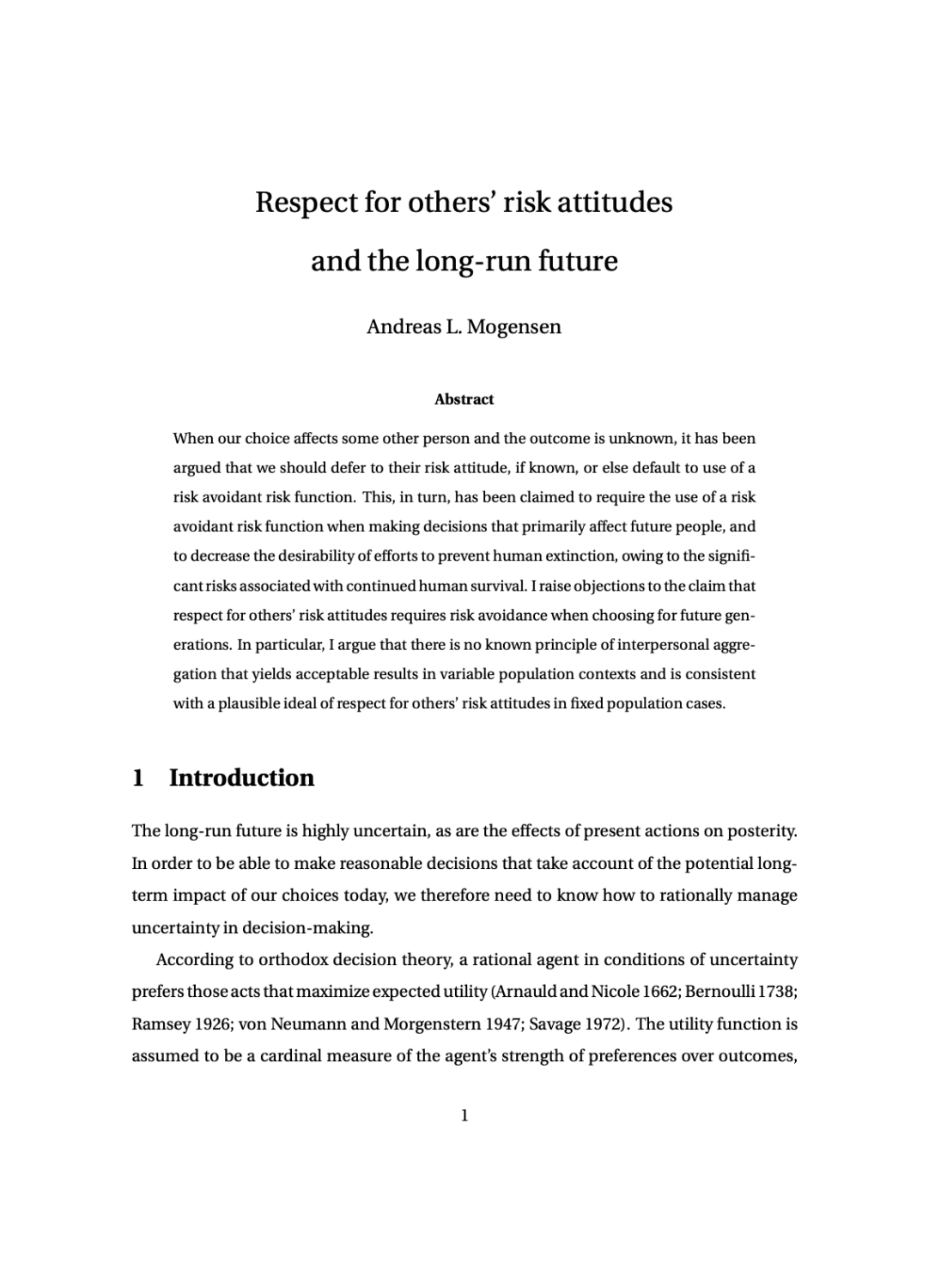Respect for others' risk attitudes and the long-run future
Andreas Mogensen (Global Priorities Institute, University of Oxford)
GPI Working Paper No. 20-2022, published in Noûs
When our choice affects some other person and the outcome is unknown, it has been argued that we should defer to their risk attitude, if known, or else default to use of a risk avoidant risk function. This, in turn, has been claimed to require the use of a risk avoidant risk function when making decisions that primarily affect future people, and to decrease the desirability of efforts to prevent human extinction, owing to the significant risks associated with continued human survival. I raise objections to the claim that respect for others’ risk attitudes requires risk avoidance when choosing for future generations. In particular, I argue that there is no known principle of interpersonal aggregation that yields acceptable results in variable population contexts and is consistent with a plausible ideal of respect for others’ risk attitudes in fixed population cases.
Other working papers
Dynamic public good provision under time preference heterogeneity: theory and applications to philanthropy – Philip Trammell (Global Priorities Institute and Department of Economics, University of Oxford)
I explore the implications of time preference heterogeneity for public good funding. I find that the assumption of a common discount rate is knife-edge: allowing for time preference heterogeneity produces substantially different funding behavior in equilibrium…
Doomsday and objective chance – Teruji Thomas (Global Priorities Institute, Oxford University)
Lewis’s Principal Principle says that one should usually align one’s credences with the known chances. In this paper I develop a version of the Principal Principle that deals well with some exceptional cases related to the distinction between metaphysical and epistemic modality. I explain how this principle gives a unified account of the Sleeping Beauty problem and chance-based principles of anthropic reasoning…
Philosophical considerations relevant to valuing continued human survival: Conceptual Analysis, Population Axiology, and Decision Theory – Andreas Mogensen (Global Priorities Institute, University of Oxford)
Many think that human extinction would be a catastrophic tragedy, and that we ought to do more to reduce extinction risk. There is less agreement on exactly why. If some catastrophe were to kill everyone, that would obviously be horrific. Still, many think the deaths of billions of people don’t exhaust what would be so terrible about extinction. After all, we can be confident that billions of people are going to die – many horribly and before their time – if humanity does not go extinct. …

